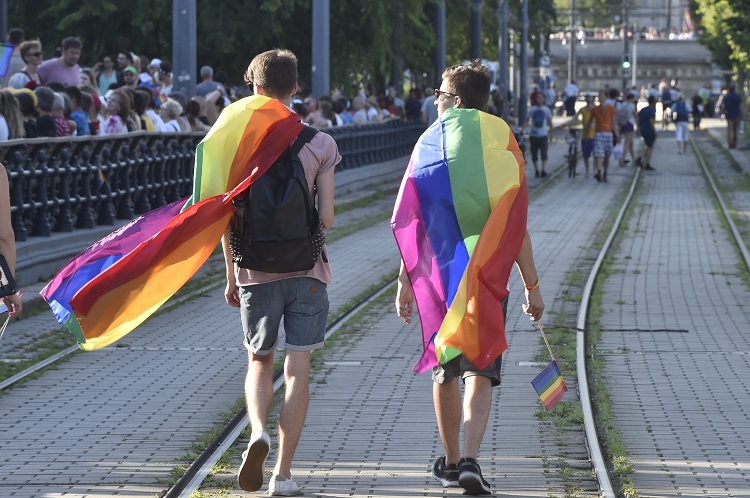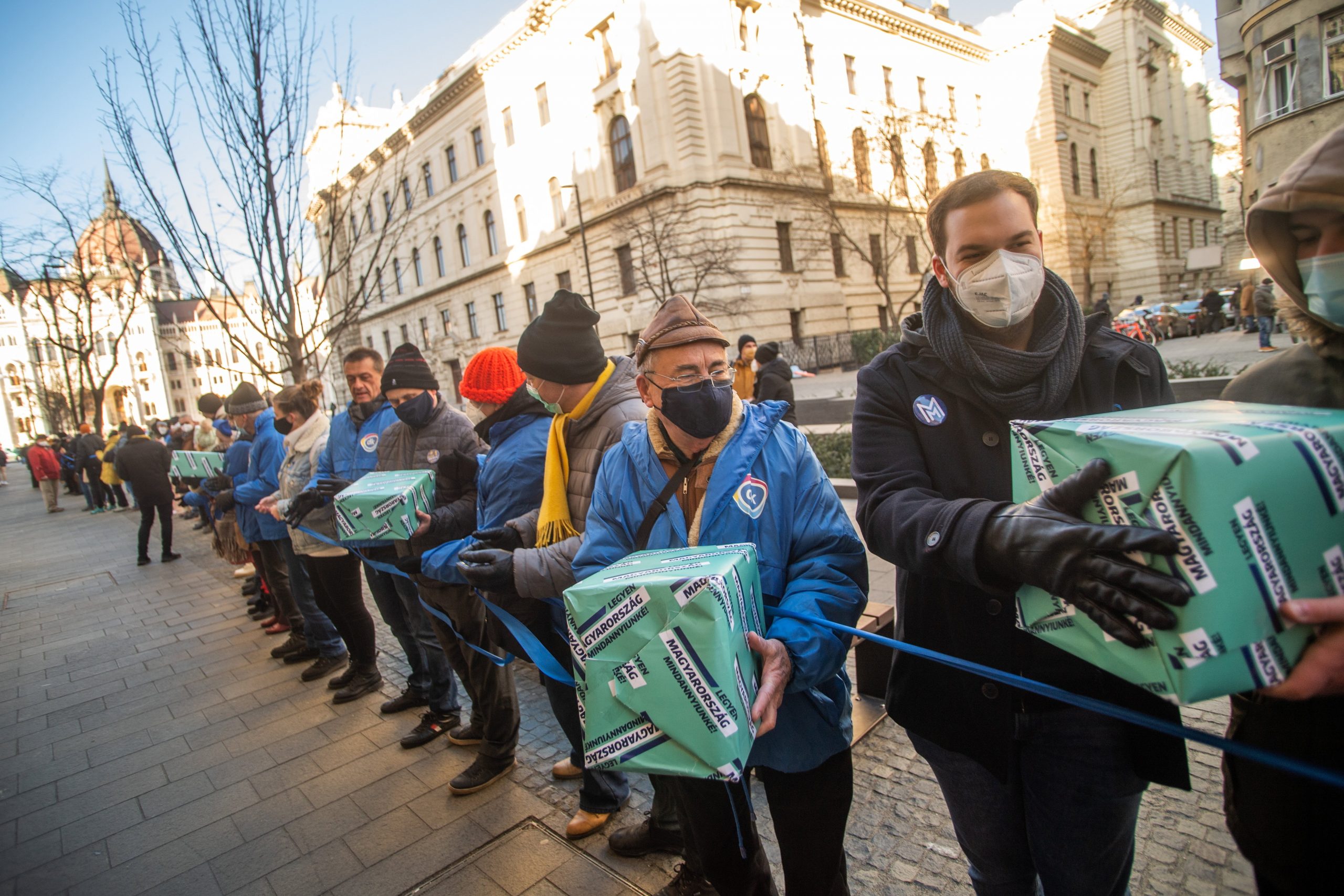
Reacting to this, FM Szijjártó said that "Another international bureaucrat joined the international LGBTI chorus attacking Hungary."Continue reading

Concluding their signature drive, the opposition alliance on Friday handed over the 235,000 signatures supporting each of their referendum questions to the National Election Office. Collecting them took longer than expected, so the chance for the two-question referendum to be held together with the general election is low. Although Gergely Karácsony said there isn’t any legal obstacle to do so, and “if Fidesz prevents this administratively, that will send another very strong message to the Hungarian people.”
After the National Election Committee (NVB) only approved two questions (the one guarding the Student City Project and dismissing Chinese state university Fudan’s arrival, and the one on extending the jobseekers’ allowance) out of five, the opposition parties wished to collect 200,000 signatures by mid-January, with some even hoping for a late December conclusion.
This was delayed by some days, but on Friday their representatives eventually submitted the paperwork.
February 12th is the latest date for President János Áder to call the referendum to be held together with the parliamentary elections. By then, the National Elections Office (NVI) will have to check the signatures (200,000 valid ones needed), then the National Election Committee (NVB) will have to establish the results and forward them to House Speaker László Kövér (Fidesz).
The National Assembly must then order the referendum, which may still be appealed at the Constitutional Court (AB) within five working days. If someone submits a constitutional complaint, AB has a further five days to make a decision.
Therefore, according to the MSZP-delegated member of the Election Committee, András Litresits, under such conditions it is questionable whether it could be held on April 3rd.
The leader of pro-Fidesz think-tank Center for Fundamental Rights also pointed out that there was still a long way to go until the actual vote could be held.
The last time a referendum initiated by an opposition party or parties was held in Hungary was in 2008. Since then, referendums have only been held on issues proposed by the government.
Earlier, in an interview with government-critical conservative weekly Magyar Hang, Péter Márki-Zay announced that due to several obstacles, doubts, and some inner conflict, perhaps their motivation wasn’t the greatest either. He argued that in his view, the ruling forces won’t allow the vote to be held together with the elections (unlike the ruling parties’ controversial LGBTQI-themed referendum, in which case, due to the government initiating it, the procedure was cut short and was green-lighted long ago).
“It was quite clear from Viktor Orbán’s press briefing that whenever the opposition collects signatures, the [Supreme Court] Kúria will delay the approval of the questions until it prevents them from being on the ballot papers on election day. From then on, it is only natural that the opposition does not devote all its resources to collecting signatures.”
He, however, refuted that it would have been something of an intentional thing, also blaming the timing of the drive (holidays and cold weather) which definitely made the opposition activists less available and active.
In the joint press conference held after the politicians submitted the signatures in front of Parliament, Péter Márki-Zay argued (in a message he wrote after recently testing positive for Covid): “…there are two worlds living side by side in Hungary, one is distracting attention from the important issues with lies. This is the side that is currently scaring people with sex-change operations for kindergarten children, while remaining silent on corruption and on issues of substance.”
The real issues (…) are how the state would and should help people who have lost their jobs, for example, due to the pandemic, or what kind of higher education and accommodation should the Hungarian state provide for Hungarian students, and not the Chinese,”
he also said, insisting that the real referendum on April 3rd will be on just one question: “Fidesz or no Fidesz.”
According to Budapest Mayor Gergely Karácsony (Párbeszéd), implementing earlier plans to build a student accommodation complex in Budapest rather than a campus for China’s Fudan University was in the public interest. He also called for a “less tight-fisted” system for job-seekers.
Momentum‘s Anna Orosz referred to the large number of signatories supporting the referendum initiative, saying the united opposition had surmounted manifold difficulties in their bid to topple the current government, and it would do so again.
Erzsébet Gy. Németh of Democratic Coalition (DK) said that the required number of signatures had been collected despite “the government doing everything” to thwart the initiative. She asked for continued support to ensure that “this country has a new, democratic government.”
According to Socialist (MSZP) deputy leader Imre Komjáthi, “deceitful government propaganda cannot cover up a crisis” in which people were struggling to make ends meet “while the government is busy stuffing their own pockets and those of their cronies.”
Párbeszéd co-leader Tímea Szabó said that the collection of signatures for the opposition’s referendum drive had taken just 30 days, and the referendum could be held at the same time as the general election on April 3rd. If President János Áder set a different date, this would “go against the will of the Hungarian people,” she added.
LMP co-leader Máté Kanász-Nagy argued that the referendum was “becoming more and more relevant.” He accused people close to the ruling Fidesz party of “looting without any inhibition.”
After the press conference, a human chain was formed to forward the signatures collected from Parliament square to the National Election Office’s seat nearby.
featured image via Zoltán Balogh/MTI